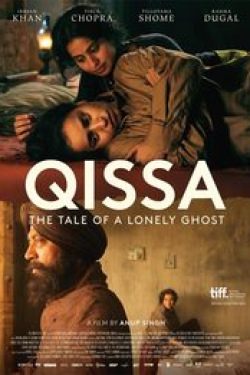Qissa: The Tale of a Lonely Ghost Reviews and Ratings

-
One of the most beguiling films of recent times, Qissa captivates even as it confounds.
-
A marvel of ambition, intelligence and observation NFDC’s first German collaboration ‘Qissa’ is a distinctive adage veined with thought-provoking gender defining moments and outstanding performance. A must for true connoisseur’s of art and cinema.
-
The complexities of Qissa are intensified through the breath-taking cinematography, certainly a strength of the film. The night shots of the moon not only carry connotations of loneliness and darkness but of hope and desire.
-
Qissa is a film about broken minds, social dysfunctions and alternate sexuality in pre-partition India. It has all the trappings of a great art film. But it’s served with nonchalant experimentation. And that is where this fable falls short.
-
Rarely do we get to watch films where we are constantly reading faces minutely, searching for answers, for clues. We do so here and they all remain dazzlingly ambiguous. None more so than the ever fabulous Irrfan Khan who inhabits the persona of a Sikh, a father, a husband, a soul with incredibly lyrical sagacity. Traumatised and desperate, he possesses and exudes spookiness that’s fundamental to connecting with this qissa.
-
Watch it for a moving story about human emotions and people grappling with changing times. Irrfan and Tisca are terrific in Qissa.
-
Qissa is a masterpiece which should not be missed by you if you are an ardent lover of serious and parallel cinema. This technically brilliant film will definitely hit you hard turning out to be an experience which will indeed live with you forever.
-
Qissa gets the largest measure of its strength and glory from Irrfan. Like the ghost that follows the film’s gender-challenged protagonist Qissa will haunt you forever. It takes the patriarchal obsession with the male heir to a level of lucid expression where geopolitical dislocation and gender ambivalence are locked in a visceral embrace.
-
Both the cinematography and the background score are nicely moody and leave you with a sense of foreboding. ‘Qissa’ is in the tradition of a compelling folktale that you can’t shake off once you’ve heard it. I’m going with three out of five. I recommend that you watch the film for its unique voice.
-
‘Qissa’ is lambent, lovely, and completely seductive up till this point. It then tumbles into another zone, where an accident leads to a death, and the appearance of a ‘ghost’, and the tale stutters.
-
There are elemental images in Qissa that will stay with you for as long as cinema exists Standing tall at the centre of the this towering achievement,illuminating every corner of director Anup Singh’s poignant parable on perverse parenthood, is Irrfan Khan. Set aside the badla that beckons at the boxoffice this week. Qissa is a killer.
-
Qissa is a painful story and it is strictly meant for those who watch films for their rich content and not its entertaining quotient. In a way it is a depressing film and may not make up for a friendly watch. I thoroughly enjoyed its raw nature…
-
Qissa is ‘dastaangoi’, and much more than that. One of the best films in recent times, it’s an experience not to be forgotten easily. Your experiences in life will decide your views towards the film and vice-versa.
-
Qissa is that rare cinematic treat that no genuine film lover should deprive himself/herself of.
-
Watch out for this Qissa and prepare to have your mind blown….an uncompromising film with sterling performances by its actors…
-
Qissa is far less dense and a simpler narrative. Despite losing its way in parts, it’s a thought-provoking film that looks beautiful and has some superb acting performances by Dugal, Shome, Khan and Chopra. That isn’t enough to make Qissa satisfying, but it does leave you haunted by the questions that riddle Kanwar, Neeli, Mehar and Umber’s stories.

























